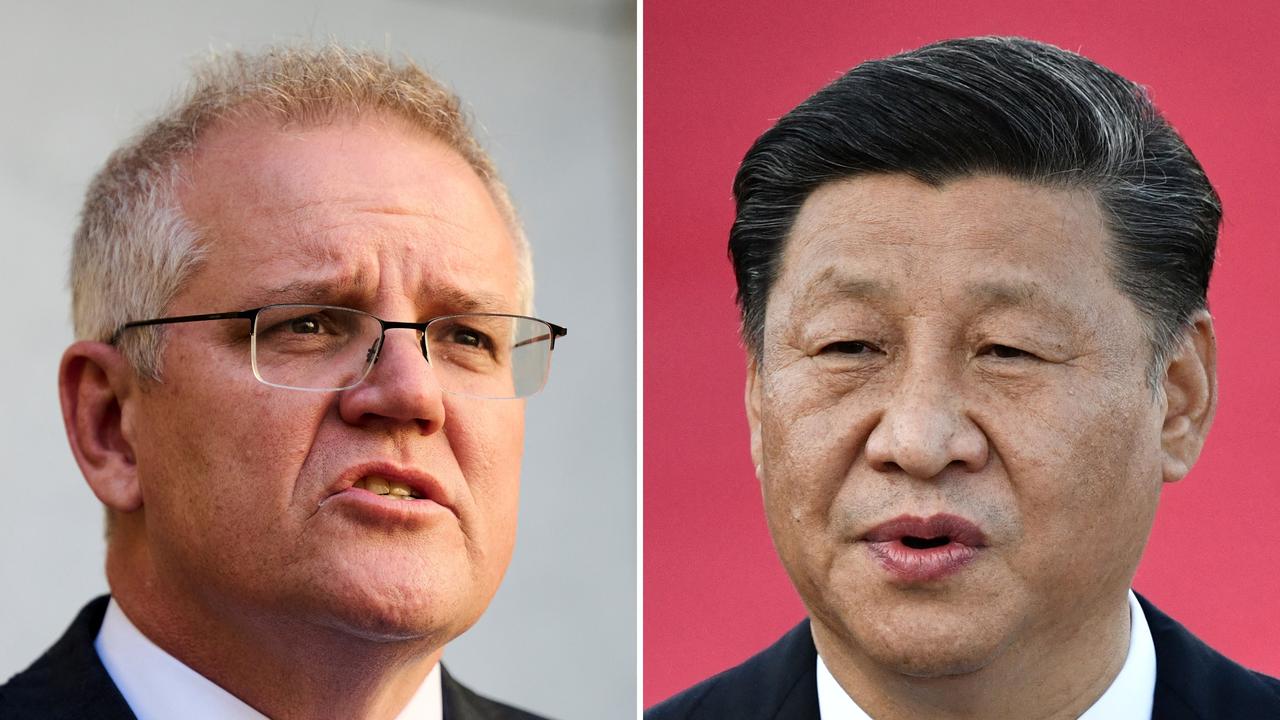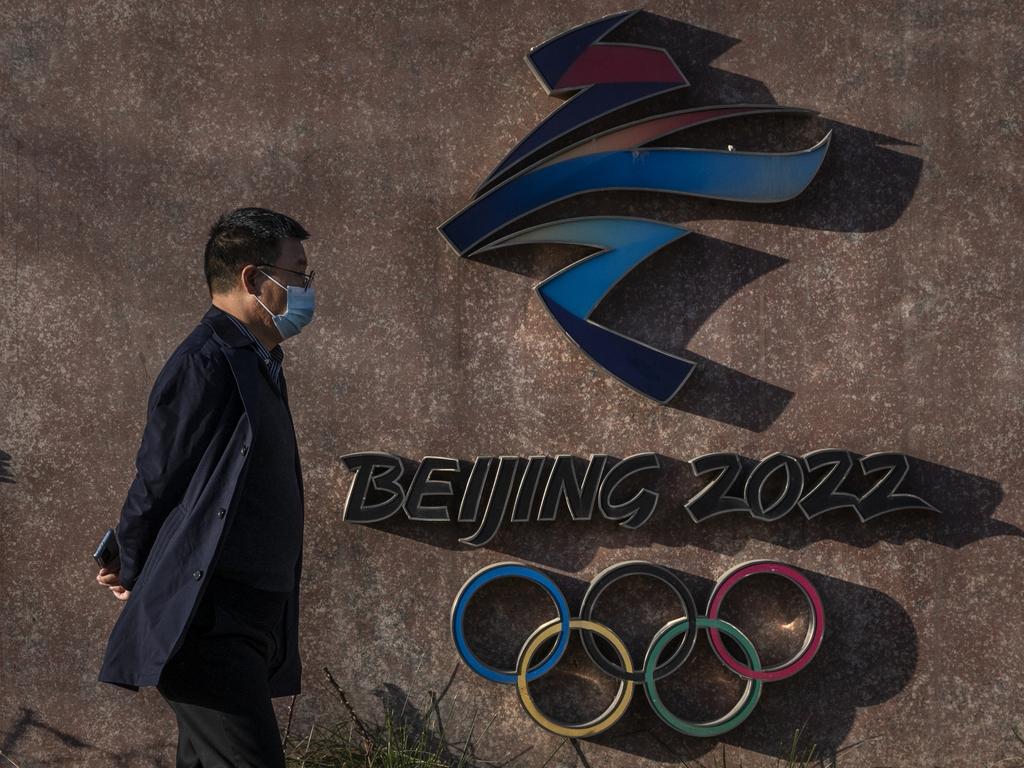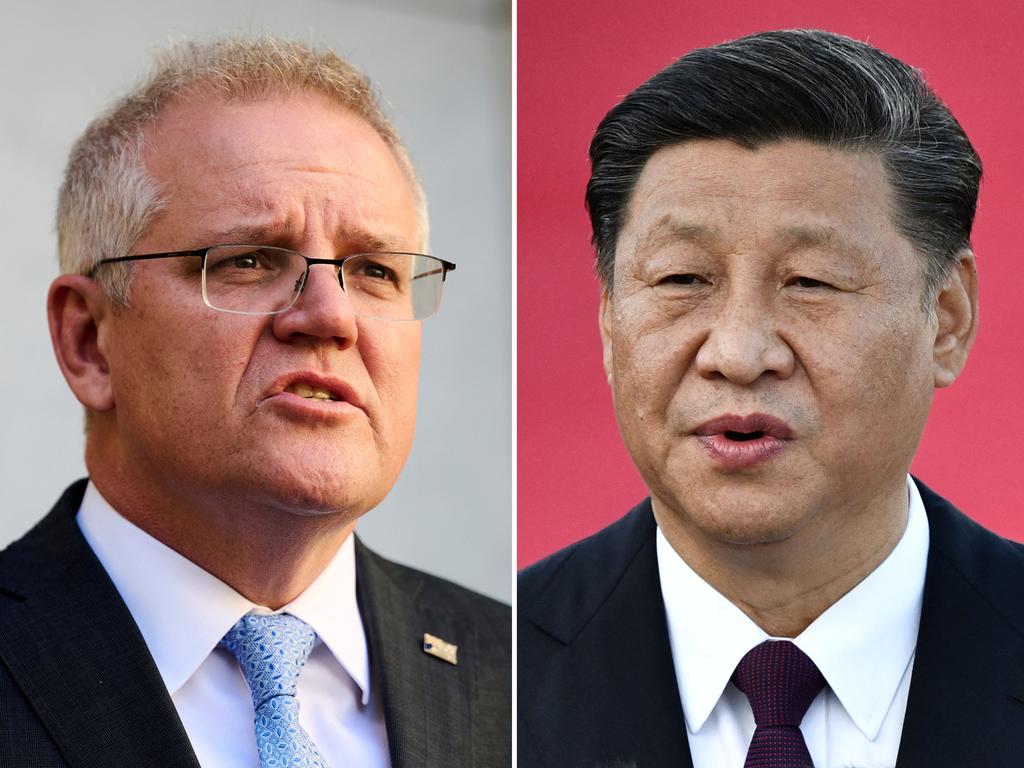Australia’s Beijing Games boycott does not go far enough
Australia’s diplomatic boycott of the Beijing Winter Olympics has set off a firestorm. But our reason for not going all the way is problematic.

COMMENT
On the surface, Australia’s decision for a diplomatic boycott the Beijing Winter Olympics is a welcome one.
China has much to answer for, not least of which are the human rights abuses described this week by Washington as “genocide”.
Specifically, what the Morrison Government is fighting against with its boycott is the imprisonment of at least one million mostly Muslim minorities in Chinese camps where authorities are accused of forcibly sterilising women.
The accusations are horrific and worthy of the strongest condemnation. With that in mind, let’s take a closer look at the details of the “boycott”.
Australia’s 40 or so athletes will go to the Games to represent their country on the world stage. Australian fans will travel to China for the February Games to cheer on their favourite athletes.
The boycott means only that Australia’s diplomats will be absent. Well, unless you include the seven-person delegation from Queensland who will attend as is required ahead of Brisbane’s hosting duties in 2032.
If that feels a bit soft … well … it is.
This is how seriously China is taking Australia’s power play, courtesy of Foreign Ministry spokesman Zhao Lijian:
“These politicians who brag about the so-called boycott are simply doing it for their own political gains and attention.
“Whether they come or not is in the interest of no one, and will have no influence on Beijing holding a successful Olympics.”
Zhao (yes, the same Zhao responsible for the repugnant doctored photo of an Australian soldier with his knife pressed against an Afghan child’s throat) doesn’t seem too bothered.
China’s relationship with Australia is not particularly complicated, but it holds clues as to why Canberra did not go harder.
The two countries are not in open dialogue and haven’t been since Australia twice sinned in the eyes of its former friend — once when it banned Huawei from its 5G broadband rollout and again when it called for an independent inquiry into the origins of the coronavirus.
China responded with wide-ranging sanctions on barley, wine, timber, lobster and coal and a frankly bizarre letter to Australia listing 14 grievances.

In announcing the boycott, Prime Minister Scott Morrison made it clear that Australia had been trying to meet in the middle — to come to a truce of sorts.
“For some time (China) will have been very aware that we have been raising a number of issues that have not been received well in China,” he said.
“We have been very pleased and very happy to talk to the Chinese Government about these issues and there has been no obstacle to that occurring on our side.
“But the Chinese Government has consistently not accepted those opportunities for us to meet about these issues,” Mr Morrison said.
So why didn’t Australia go further? Well, as the PM acknowledged, politics and sport are separate.
“I very much separate the issue of sports and these other issues, they are issues between governments,” he said.
It was a sentiment shared by the Australian Olympic Committee whose official statement left out the word “boycott” altogether.
“The AOC respects the fact that diplomatic options are a matter for governments and that politics and sport should be separated,” the statement reads.
The AOC said, “Our Australian athletes have been training and competing with this Olympic dream for four years now and we are doing everything in our power to ensure we can help them succeed.
“Human rights are extremely important, but the considered view of diplomats is that keeping channels of communication open is far more impactful than shutting them down.”
The key phrase there is, “Human rights are extremely important but...”. That’s a big red flag.
There’s another reason Australia didn’t go further: Fear of China imposing new punishments.
A day earlier, after the US announced its boycott, China responded with non-specific threats.
“Stay tuned,” Zhao told reporters at a daily press briefing.

“The US attempt to interfere with the Beijing Winter Olympics out of ideological prejudice, based on lies and rumours, will only expose (its) sinister intentions.
“The Winter Olympics are not a stage for political shows and political manipulation.”
Queensland Liberal Senator James McGrath told Sky News that Australia needs to send a strong message to China “about how they treat the Uyghurs”.
“Bullies don’t respect weakness; we’ve got to be strong and stand up to Communist China,” he said.
Gordon Chang, author of The Coming Collapse of China, said bullies won’t respond to a boycott.
“Certainly, we need to go much further,” he told Newsmax. “Why are we sending athletes to a country when we can’t guarantee their safety?
“These crimes are so reprehensible that they require further action. We should be going to the International Olympic Committee and demanding they move the Games to a country not tainted by genocide.”
The atrocities of #China’s regime require #American action to end these crimes. Not sending diplomats to the #WinterOlympics is a start but is hardly sufficient. @LyndsayMKeith@newsmaxhttps://t.co/YCn4LA0NJ6
— Gordon G. Chang (@GordonGChang) December 7, 2021




